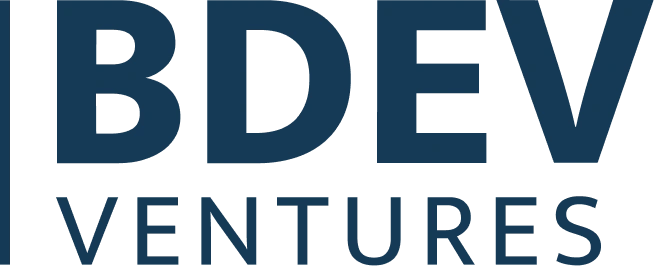How ABACON CAPITAL built a relationship-focused tech stack with Affinity to drive their investment strategy

.webp)







Introduction
ABACON CAPITAL, founded in 2021 in Hamburg, Germany, believes that the world's biggest challenges are also the most important business opportunities. Accordingly, the team is committed to supporting companies that believe in the co-elevation of people, purpose, and profit for a prosperous society and planet.
Rather than focusing on a specific asset class, ABACON’s investments are driven by this mission and include technologies that assist with the transition to clean energy, next-generation mobility, and sustainable real estate.
ABACON has a small, diverse team that values teamwork over showmanship. They strive for scale, which means they need the right tools and technologies to support their portfolio by leveraging network, experience, and foresight. And even though they don’t plan to grow their team just yet, ABACON wanted to build a strong foundation that could support their team long-term.
Challenge
Needing technology that can support the business
When ABACON set out to build their tech stack, it was important that they chose technologies that supported the way they work. They started with the Microsoft Office 365 suite for external communications and Slack for internal communication—choosing Slack over Microsoft Teams because of better alignment with their use case and interest in Slack’s roadmap.
In addition to these communication tools, ABACON was also interested in bringing on other software—from customer net promoter score (NPS) survey tools to task and project management platforms and forms for pitch submissions.
It was important that they had a system that could connect relationships and deal management with these other technologies. “A lot of CRMs provide structured data management, but in the end we had to do the data entry ourselves, and that was a no-go for us. Affinity’s automation and data enrichment meant we could focus on the thing that really matters to us: building relationships, gaining insights, and supporting the portfolio companies,” said Sven Rossmann, Chief Investment Officer at ABACON CAPITAL.
Solution
Plug-and-play with one platform
Affinity’s automated contact and deal data capture offered a way to reduce menial data entry for the ABACON team. But they also wanted to automate communications between new and existing apps in their tech stack. They chose Affinity because of its open API and existing integrations that allowed them to create an interconnected network of tools.

Capturing and implementing client feedback
ABACON regularly sends out NPS surveys to gain feedback from their partners, but they were having a difficult time acting on that feedback in a timely manner. Now, they use Affinity to set regular reminders to contact clients they’ve worked with in the last 90 days, and by connecting their tool, Delighted, any responses are shared directly with their team.
This has even been taken a step further. Once results are logged in Delighted, they’re uploaded to Affinity and this prompts a Slack message update in a particular channel. “Now, we don’t have to wait for regular check-in calls with our portfolio companies, and we have a way for them to share anonymous feedback that is shared directly with our team so we can act on it.” Rossmann added.
Streamlining the intake process for new prospects
ABACON also manages other incoming messages through Affinity. They adopted Typeform as an intake tool for their LinkedIn and website’s “Contact us” form, and information submitted through the form is now funneled directly into new Affinity contact records.
Previously, form results were sent to email inboxes. They would get buried under other incoming requests and could easily be lost. When inbound requests reached a certain volume (up to 60 per week during conferences) ABACON’s small team would have to manually record new contact records and enroll them in email workflows or send them a rejection on top of the time already spent sorting them.
Now, they use designated fields to automatically sort submissions. They can distinguish between different types of submissions (e.g. startups, GPs/VCs, placement agents, etc.) with dedicated workflows (e.g. specific startup questions that don’t make sense for other types of inquiries). “We can go directly into an organization page and see the details logged in the Typeform submission, including the deck,” Rossmann said. “We can review it and make a decision quickly.”
Results
A tech stack designed for an exponential organization
Laying the groundwork for ABACON’s deal volume and team to grow was a vital part of their decision-making process. With Affinity in place, they now have that foundation. “Today, maybe I’m the only contact person, but long-term planning for us means looking 10+ years from now. If someone joins later on, they’ll now have the full history of what’s happened with a company or person.” Rossmann added.
With all of this information at their fingertips, they can be a better partner and support their companies more effectively. “When we start a relationship, the investment isn’t the end. The work starts there. We consider ourselves partners for the long term.” Rossmann said. ABACON now has a tech stack, with Affinity at its core, that helps its team support those relationships from the moment of submission and for years to come.



.webp)

.webp)


.png)

